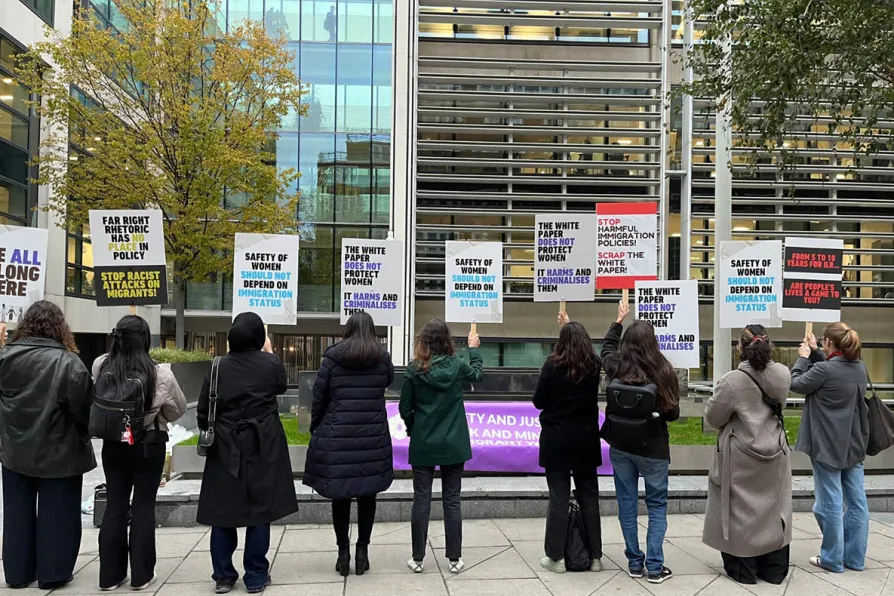
 Campaigners gather outside the Home Office in London, calling for an end to the government’s immigration policies that endanger migrant women and entrench racial injustice, October 15, 2025
Campaigners gather outside the Home Office in London, calling for an end to the government’s immigration policies that endanger migrant women and entrench racial injustice, October 15, 2025
CAMPAIGNERS have gathered outside the Home Office to demand an end to the government’s immigration policies endangering migrant women.
The protest on Wednesday was co-ordinated by the Latin American Women’s Rights Service, Step Up Migrant Women, Southall Black Sisters, Hibiscus, and the End Violence Against Women Coalition, in response to Labour’s Immigration White Paper.
Proposals include doubling the qualifying period for settlement from five to 10 years, raising skill and income thresholds, and tightening English language requirements.
Campaigners argue that the changes will mean that VAWG organisations will struggle to recruit and retain staff who provide the lived experience and cultural awareness necessary to give effective support.
Gender pay gaps mean women are less likely to meet salary thresholds, and the higher skills threshold will disproportionately impact racialised women who often work in so-called “low skilled” roles, or are not promoted as quickly as their male counterparts, including due to caring responsibilities.
Speakers at the demonstration included Labour MP Apsana Begum, who said: “The immigration system has to be one rooted in compassion not suspicion, and humanity not hostility, and the Immigration White Paper only puts migrant survivors at risk.”
A Southall Black Sisters spokesperson said: “Victim-survivors need indefinite leave, access to public funds and a firewall on data sharing with Immigration Enforcement to enable them to escape abuse in line with the government’s mission to half violence against women and girls within a decade to protect all women.”
Last month, campaigners sent a joint statement to Home Secretary Shabana Mahmood, warning that the white paper would further trap black, minoritised and migrant women in abusive situations, create further barriers and deny survivors access to safety and justice. They said they have set to receive a reply.
A Home Office spokesperson said: “We understand many migrant victims of domestic abuse face specific challenges, including cultural and language barriers.
“That’s why this government is working tirelessly to support victims, including with how to access appropriate support and encourage reporting to the police.”

The intensified Israeli military operations in Gaza are an attempt by Netanyahu to project strength amid perceived political vulnerability, argues RAMZY BAROUD













